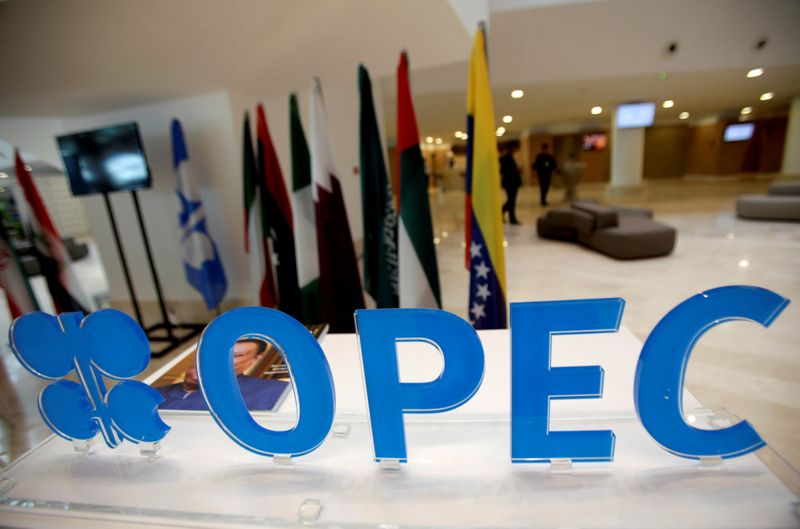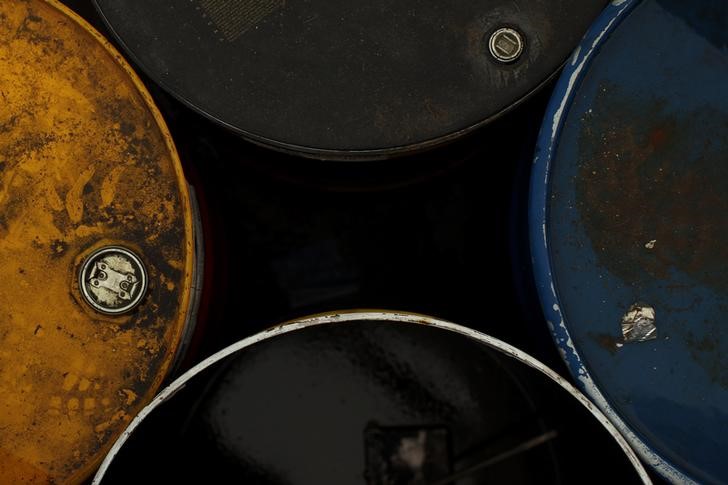By Rania El Gamal, Alex Lawler and Ahmad Ghaddar
DUBAI/LONDON (Reuters) - OPEC and allies including Russia are leaning towards postponement of a planned January increase to oil output by at least three months to support prices as the COVID-19 pandemic continues its second wave, sources told Reuters on Monday.
The OPEC+ group of producers was due to raise output by 2 million barrels per day (bpd) in January - about 2% of global consumption - as part of a steady easing of record supply cuts implemented this year.
But with demand for fuel weakening, OPEC+ has been considering delaying the increase or even making further cuts.
An option gaining support among OPEC+ nations to keep the existing curbs of 7.7 million bpd for a further three to six months, OPEC+ sources said, rather than tapering the cut to 5.7 million bpd in January.
"A three-month extension is highly likely," said one OPEC+ source.
Two OPEC+ committees are meeting virtually this week. The Joint Technical Committee (JTC) held its meeting on Monday and the Joint Ministerial Monitoring Committee, which can recommend policy steps to OPEC+, meets on Tuesday.
OPEC+ will have a full meeting on Nov. 30 and Dec. 1 to decide output policy for next year.
Algeria, currently holder of OPEC's rotating presidency, has backed an extension of existing cuts and top exporter Saudi Arabia has said the OPEC+ deal could be "tweaked".
Monday's JTC meeting also discussed figures showing OPEC+ compliance with pledged curbs was 96% in October - less than previously thought - after inclusion of compensatory cuts for past excess production by some countries, an OPEC+ source said.
The figures suggested little month-on-month progress in ensuring countries that overproduced in previous months made extra cuts now. Russia's cumulative overproduction was seen at 531,000 bpd and Iraq's at 610,000 bpd, the source said.

Oil nonetheless was trading above $44 a barrel on Monday, finding support from hopes of a COVID-19 vaccine and for further action by OPEC+.
